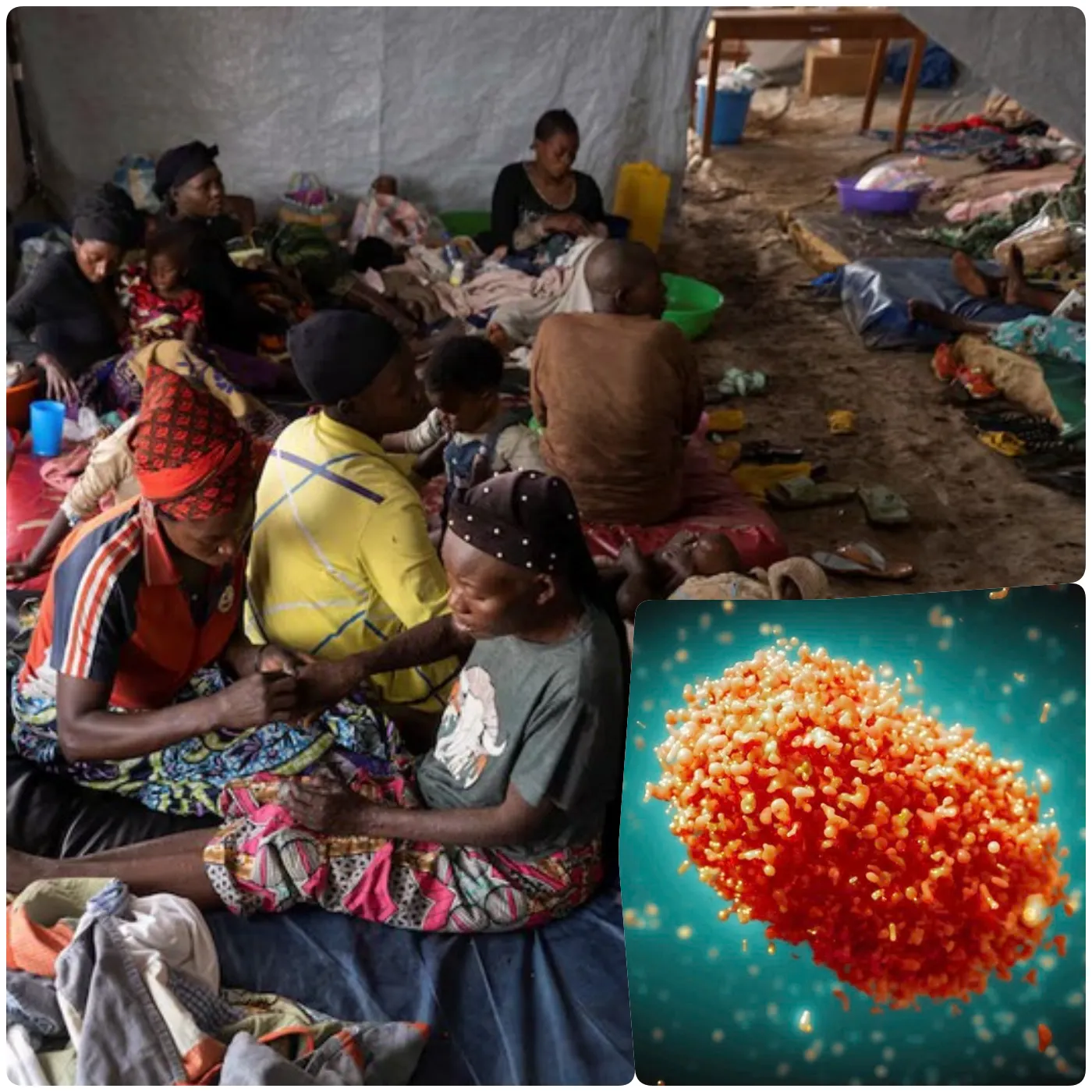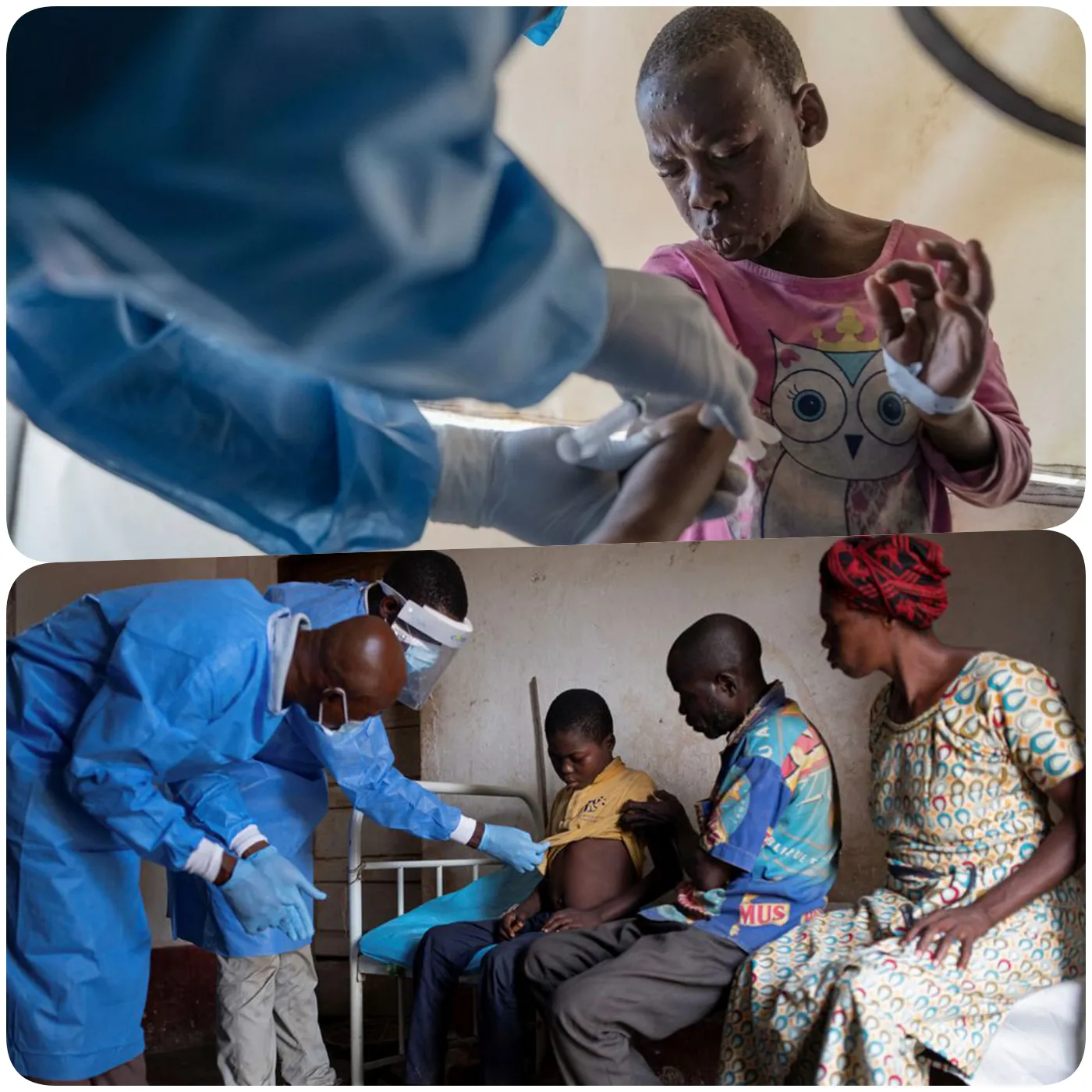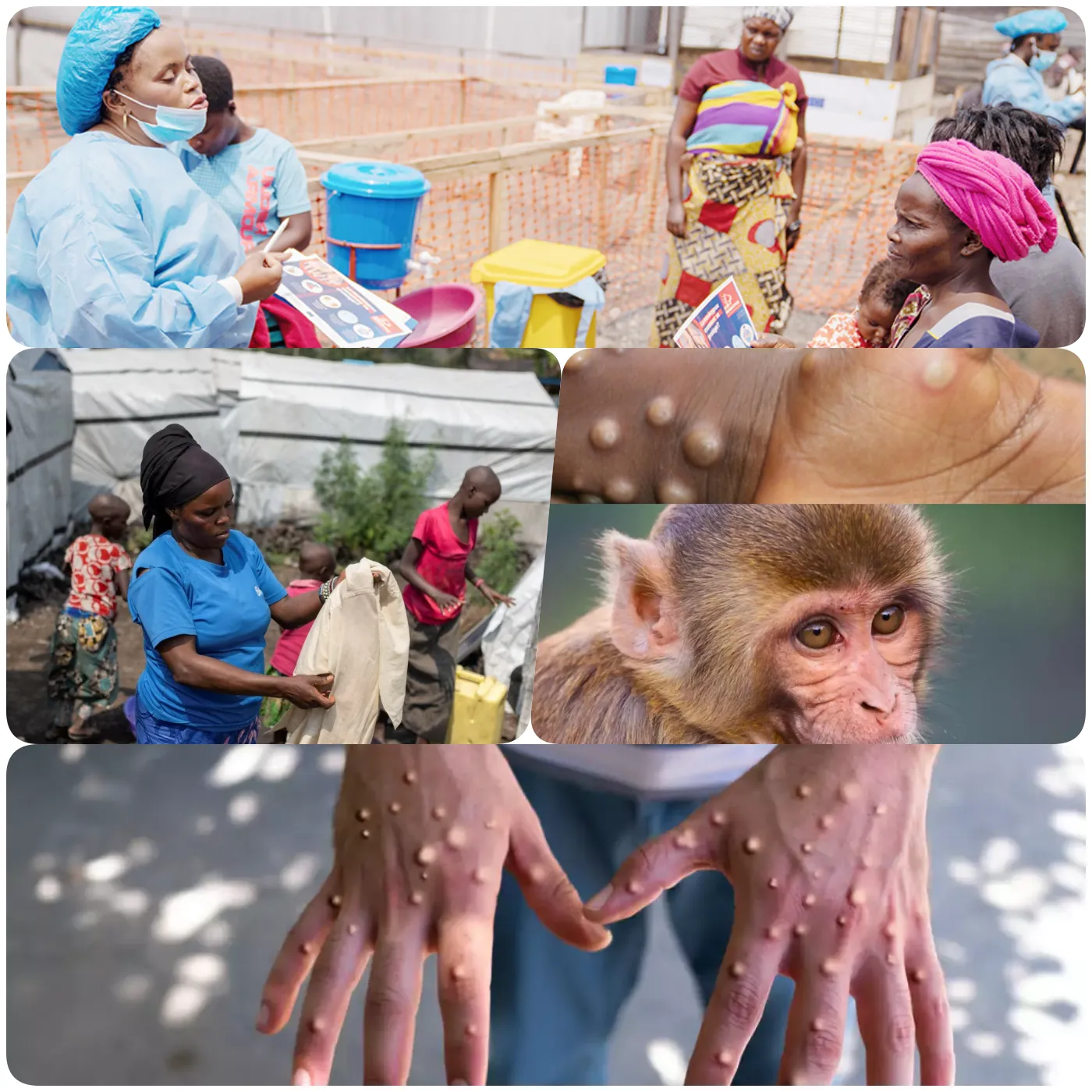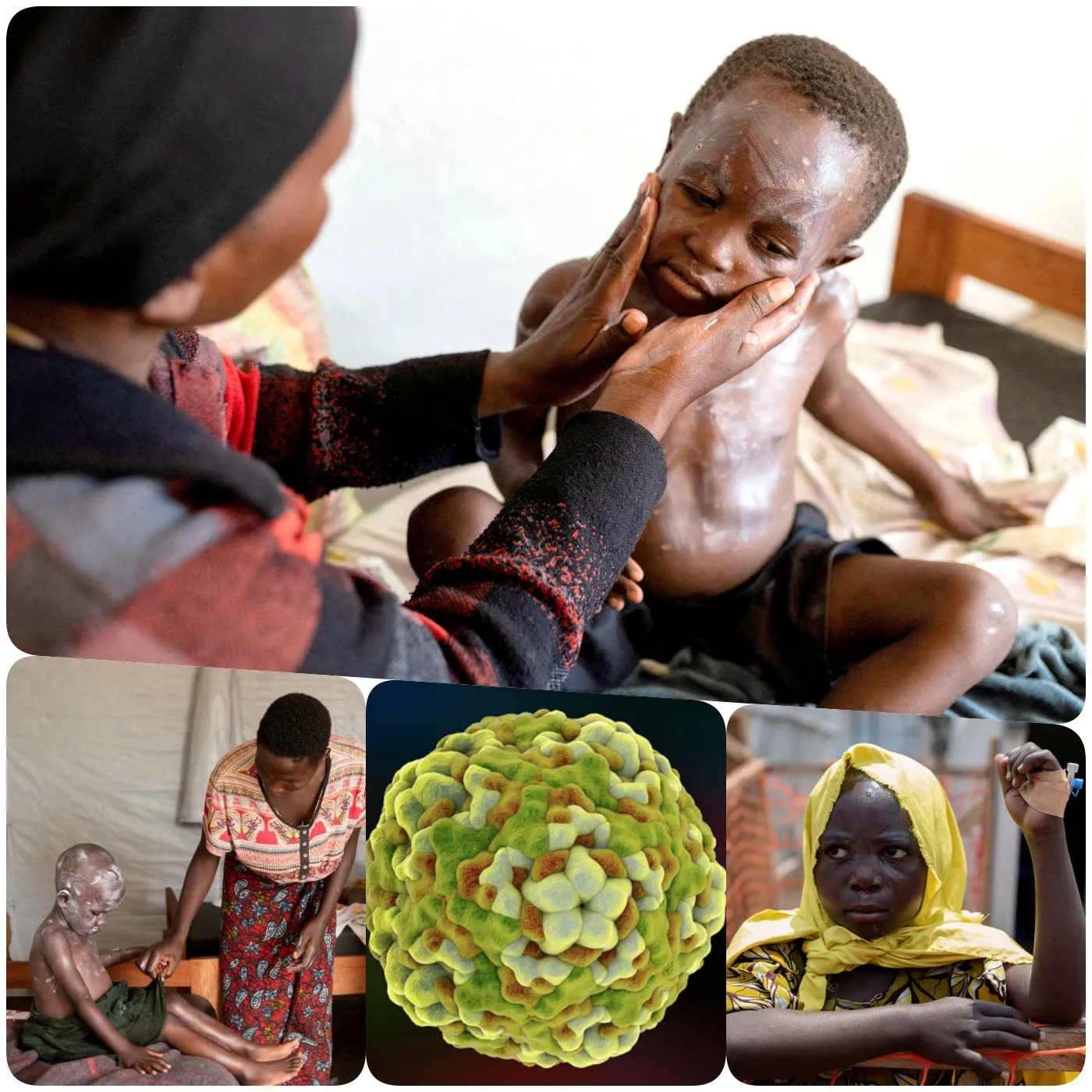
The monkeypox epidemic is raging in Congo – the epicenter of the pandemic
The Democr Republic of Congo (DRC) has become the epicenter of a global monkeypox (mpox) outbreak, for which the World Health Organization (WHO) declared a public health emergency on last month. Hospitals across the country are overwhelmed, facing severe drug shortages and limited capacity to treat growing numbers of patients.
One of the hardest hit areas is the Kavumu Hospital Complex in South Kivu, where 900 symptomatic patients have been hospitalized in the past three months. Medical staff there are struggling to keep up with demand and are urgently appealing for more support. Just last week, 135 patients, both adults and children, were crammed into three makeshift plastic tents set up on damp ground, without a roof or proper sanitation. Relatives often bring food to patients at underfunded public facilities such as Kavumu hospital, but they are still banned from Mpox ward to limit the spread of the disease. “We have nothing to eat. When asking for fever-reducing medicine for pediatric patients, they didn’t give us anything,” shared Nzigire Lukangira, 32 who is taking care of her hospitalized child.

Mpox often causes flu-like symptoms and pus-filled lesions. Although usually mild, the virus can be fatal, especially for children, pregnant women, and people with weakened immune systems. At Kavumu’s Mpox department, mothers like Lukangira have had to use traditional treatments to ease their children’s pain. They dip their fingers in potassium bicarbonate or salted lemon juice and pop the blisters – a method also used by adult patients.
A vaccine against this new strain of the virus is expected to be available in the next few days. Congolese President Felix Tshisekedi, has authorized the release of $10 million to fight the outbreak, but it is clear that more help is needed .
Cris Kacita, head of Congo’s Mpox epidemic response team, admitted that some areas of this large Central African country are lacking medicine. She emphasized that coordinating aid – such as 115 tons of medicine from the World Bank – is the country’s top priority. Kacita has also identified nine high-risk areas in the first phase of vaccination, focusing on people in close contact with infected people.

The new Ib strain currently circulating in Congo has genetic changes associated with sustained human-to-human transmission. This variant is believed to be responsible for the current outbreaks in Congo and East African countries. Since the beginning of the year through August 31, Congo’s Ministry of Health has reported 19,710 suspected cases of mpox infection, with 5,041 confirmed cases and 655 deaths. Of particular concern is the large number of children affected – 39% of all reported cases involved children under 5 years old, including infants as young as two weeks old.
Why does mpox affect Congolese children so badly? Ongoing political instability, conflict and lack of security have made it nearly impossible for Congo to develop a stable health care system capable of controlling infectious diseases. Children are already more vulnerable during outbreaks because their immune systems are still developing, but in Congo the situation is even worse. Many children are exposed to animals that carry the virus, and because they live in a country where mpox is endemic, they are at higher risk of contracting the virus.

Furthermore, while smallpox vaccine does protect against mpox, production of this vaccine was stopped in 1980 after smallpox was declared eliminated. As a result, anyone born in Congo or other African countries after that date cannot receive the mpox vaccine. To further complicate matters, African children, especially those in Congo, lack routine vaccines for diseases such as measles, chickenpox, meningitis or polio. This makes them susceptible to co-infections and can worsen their condition with mpox.
The most important steps to improve the current situation are vaccination, increased nutrition and prevention of infection in children. By fortifying these areas, Congo can hope to minimize the severe impact of the mpox outbreak on its most vulnerable populations. As the world watches the situation develop, the international community must realize that without swift action and support, the health crisis in Congo could escalate further, affecting not only the population but also contributes to the spread of the virus globally.






